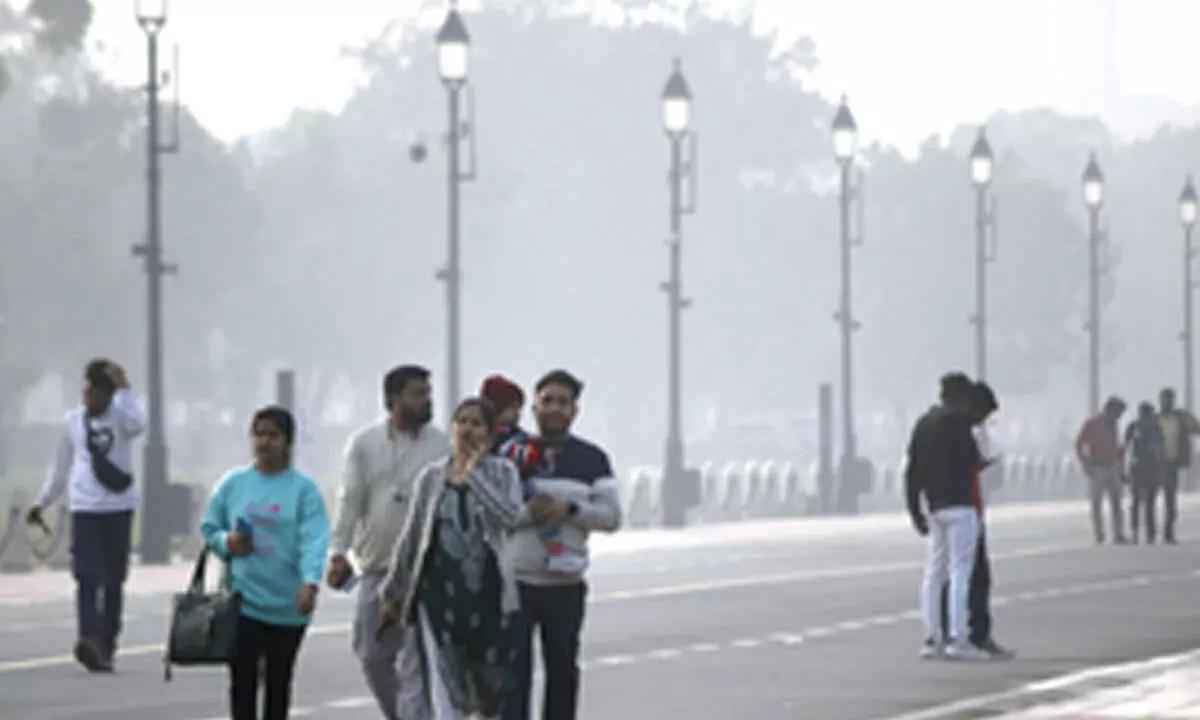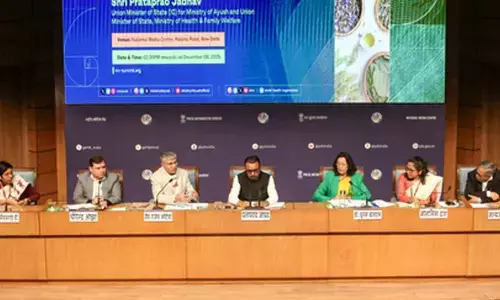Reducing air pollution key to fight new diabetes cases in India: Doctors
Share :

Reducing air pollution levels in India can be the key to curb the rising burden of diabetes in the country, health experts said on Thursday.
New Delhi: Reducing air pollution levels in India can be the key to curb the rising burden of diabetes in the country, health experts said on Thursday.
With a tenth of all Indians having diabetes, the country is already known as the diabetes capital of the world. Data shows India is home to 101 million diabetics and 136 million pre-diabetic people. The prevalence of chronic disease is expected to soar further, especially among young adults.
Earlier known to affect the lungs, research now confirms that air pollution can be a significant contributor to the onset of diabetes in India.
The latest Lancet study showed that 20 per cent of global Type 2 diabetes cases are related to chronic exposure to particulate matter (PM) with a diameter of 2·5 micrometres or less (PM2·5).
About 13.4 per cent was derived from ambient PM2.5 and 6.5 per cent from household air pollution.
Dr Ambrish Mithal, Chairman, Endocrinology and Diabetes, Max HealthCare, told IANS that there is now data to suggest that PM 2.5, which is 30 times thinner than the human hair increases the risk of type two diabetes.
"Even one month of exposure can increase the risk of insulin resistance and developing diabetes. And prolonged exposure will increase the risk of diabetes by up to 20 per cent," he said.
The air pollution levels in India are among the highest in the world. In 2023, the country was ranked the third-most polluted country globally, after Bangladesh and Pakistan, as per the 2023: World Air Quality Report.
So, while the WHO recommends five micrograms per cubic metre of PM 2.5 is acceptable, in India, the average is 50, and in some cities, it goes up even higher, the doctor said.
"The effect of air pollution on the lungs has been well documented. Recent evidence shows that air pollution can also act as an endocrine disruptor leading to type 2 diabetes," Dr V. Mohan, Chairman, Madras Diabetes Research Foundation and Dr Mohan’s Diabetes Specialities Centre told IANS.
Citing a recent study from India which followed 12,064 adults residing in Delhi and Chennai for 7 years, he said: "A 10 milligrams per cubic metre of air, increase in monthly average exposure to PM2.5 was associated with 0.04 milligrams per deciliter increase in fasting sugar and a 0.021 unit increase in HbA1c."
The HbA1c test is used to evaluate a person's level of glucose control.
"An increase in average annual PM2.5 exposure by 10 milligrams per cubic metre of air, was associated with a 22 per cent increased risk of incident type 2 diabetes. This shows the importance of avoiding air pollution to improve the health of people in general and in the prevention of type 2 diabetes in particular," the noted diabetologist said.
Experts noted that curbing air pollution levels is one of the most important modifiable risk factors for preventing new onset of diabetes cases.
How is air pollution linked to diabetes?
PM 2.5 is a tiny particle that enters the bloodstream and attaches to the cells to produce insulin resistance.
"It can possibly attack the pancreas and cause inflammation there and possibly reduce insulin secretion,” Dr Mithal said.
"While the exact mechanism is not clearly worked out, it seems to be both at the level of insulin resistance and insulin secretion. But, there is no doubt that there is a link between air pollution and diabetes and it is one of the significant contributing factors in the increase of diabetes in India," he added.
The doctor noted that poor air quality is also emerging as a major factor behind the rising cardiovascular problems in the country.
"Amid the growing link between diabetes, heart risk, and air pollution we need cleaner energy and rules on pollution," Dr Anoop Misra, Chairman & Director, Diabetes and Endocrinology, Fortis C-Doc Hospital, told IANS.
"More green spaces in cities can also help. Masks and air purifiers might help a bit, but not everyone can afford purifiers. Public education is key. We need everyone -- government, businesses, and communities -- to work together," he said.













